Shilpa Gupta at the Barbican: social injustice, censorship and poetry
In the multipart show ‘Sun at Night’ at London’s Barbican, Mumbai-based artist Shilpa Gupta highlights the fragility of free expression and gives a voice to those silenced
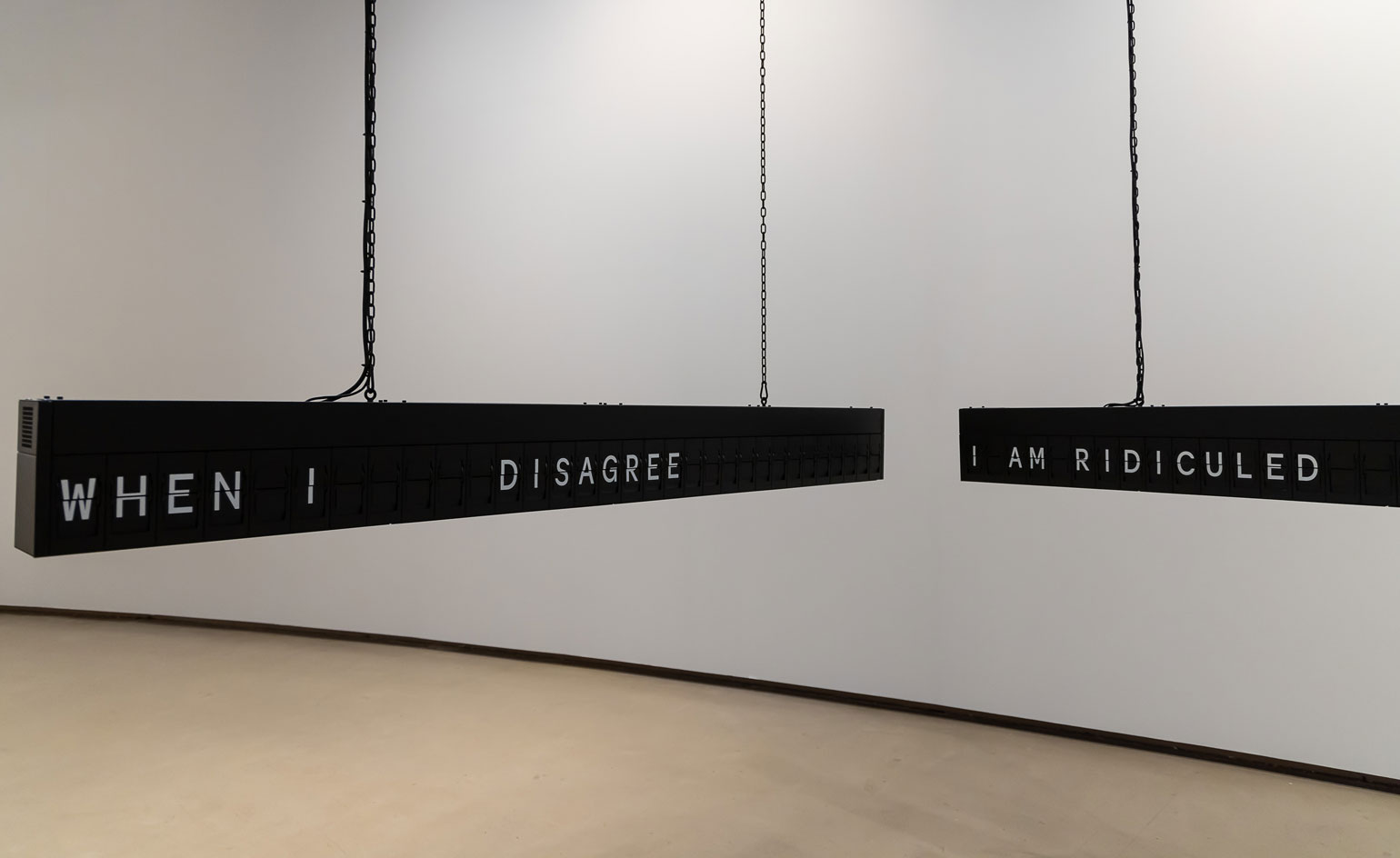
The words of Azerbaijani poet Mikayil Mushfig (1908 – 1938), labelled an enemy of the state by the Soviets, hover in the air. From a canopy of 100 low-hung microphones, a chorus clusters and repeats the poet’s statement. There is heavy breathing. Hums dissolve into whispers. Fingers click and hands furiously clap. An unpredictable rhapsody of disembodied voices darts around a dimly lit room, creating a dense fog of sounds that lingers over a field of metal spikes.
Once your senses adjust, you can edge through these spines that comprise Shilpa Gupta’s sound installation, For, In Your Tongue, I Cannot Fit (2017 – 2018). Rising up to waist height, the spears forge a constricted path. Each pierces a leaf of paper bearing fragments of the spoken verses, written by a poet incarcerated for their beliefs. It is a panoply of resistance spanning time and place, with the words of dissident writers such as Maung Saungkha from Myanmar, arrested in 2016 for his risqué claim that he had a tattoo of the president inked on his penis, melding with those of Ayat al-Qurmezi, jailed in 2011 for supposedly defaming Bahrain’s royalty.
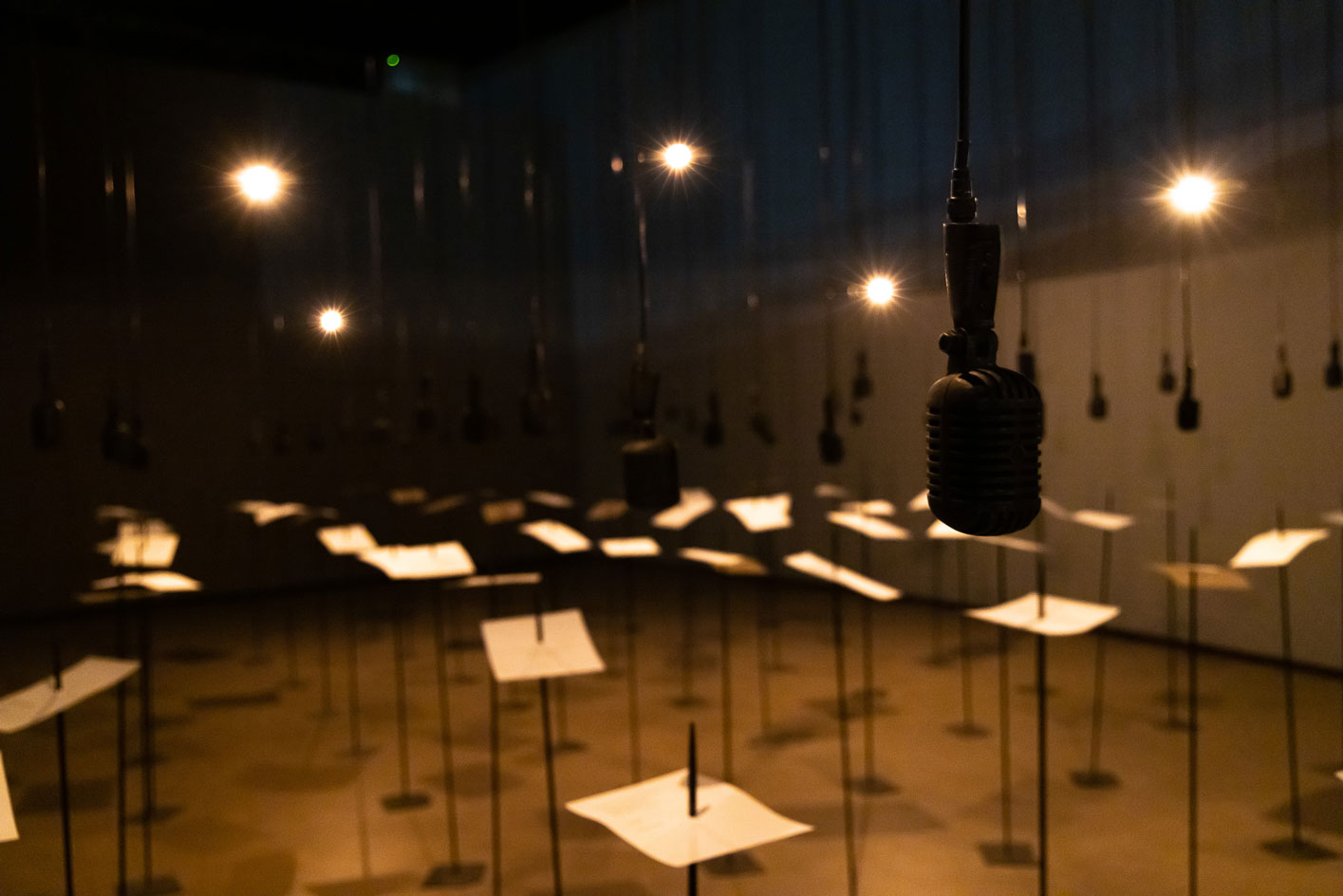
The enveloping piece is part of Gupta’s poignant exhibition ‘Sun at Night’ at the Barbican Curve. In a year when the Nobel Peace Prize has been awarded to two journalists, Maria Ressa of the Philippines and Dmitry Muratov of Russia, for their courageous advocacy and practice of press freedom, and when digital censorship is alarmingly on the rise, the show is a testament to the force of words and the fragility of our commitment to free speech.
RELATED STORY
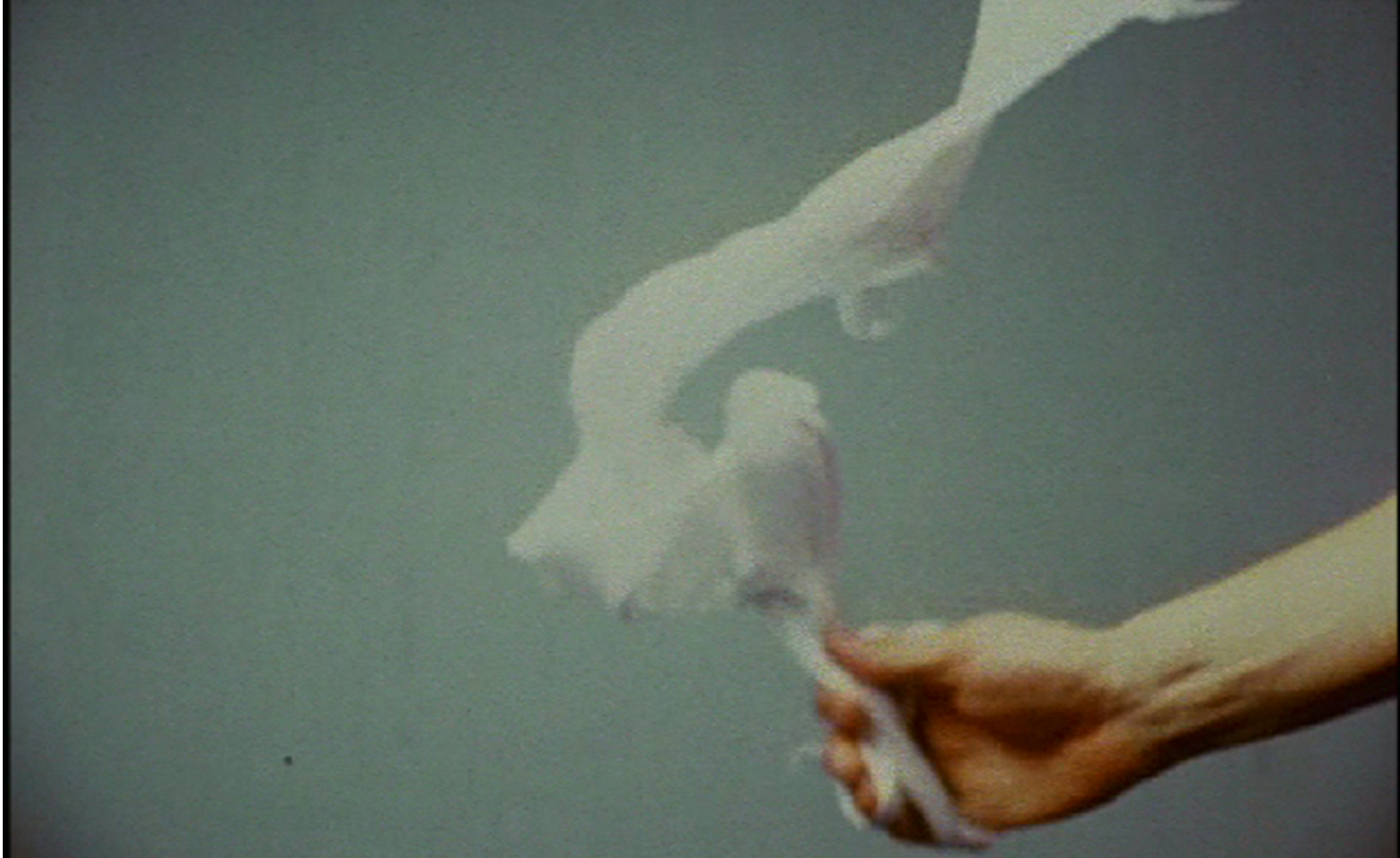
From Gavin Bond's archival photo series 'Being There'
Gupta, however, finds a refreshingly subtle way of rallying for free expression while keeping those poets at the fore. She treats their words preciously. She has ‘preserved’ the verses of censored poems by speaking them into a collection of ostensibly empty medicine bottles that form the piece Untitled (Spoken Poem in a Bottle).
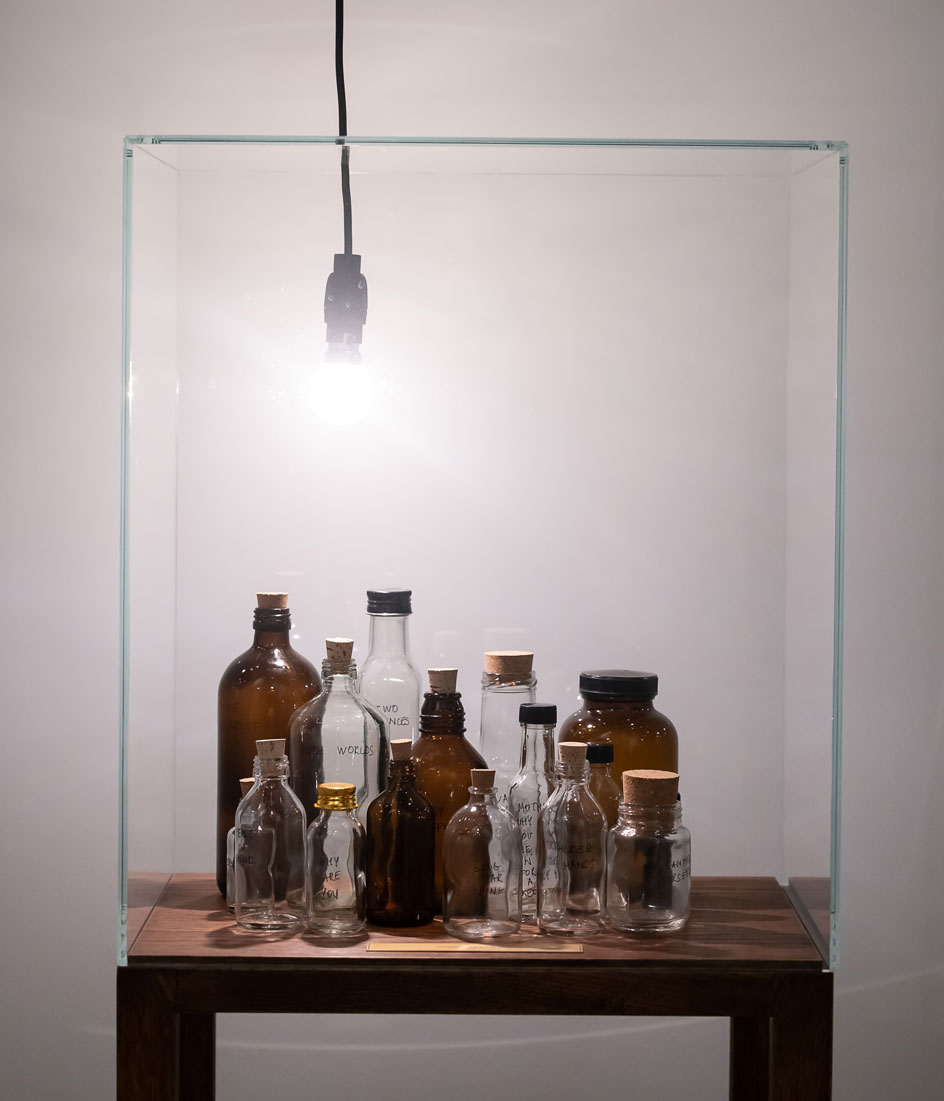
The thresholds of expression have long preoccupied Gupta. She once built a library of stainless steel books, each a replica of a title written anonymously or pseudonymously. And on the spine she explained the reasons why, capturing a range of society’s neuroses and prejudices. Gupta’s practice is characterised by its delicate investigation of social injustices and finding pathways to empathy. As she tells me, the objective of her work is ‘speaking with you and not at you and not against you. It maybe has to do with a sense of hope that a conversation might mean something.’
Come November 2021, Gupta will continue this dialogue with her first solo show at London’s Frith Street Gallery. ‘There will be spillover from the Barbican show,’ she explains, drawing a link between the genre of isolation that has been enforced throughout the world this last year. She has created a new flap-board – the kind typically associated with airport and train arrivals – that flickers through letters and settles to find our connective tissue. It spells out ‘We are closer than you ever imagined’
Wallpaper* Newsletter
Receive our daily digest of inspiration, escapism and design stories from around the world direct to your inbox.
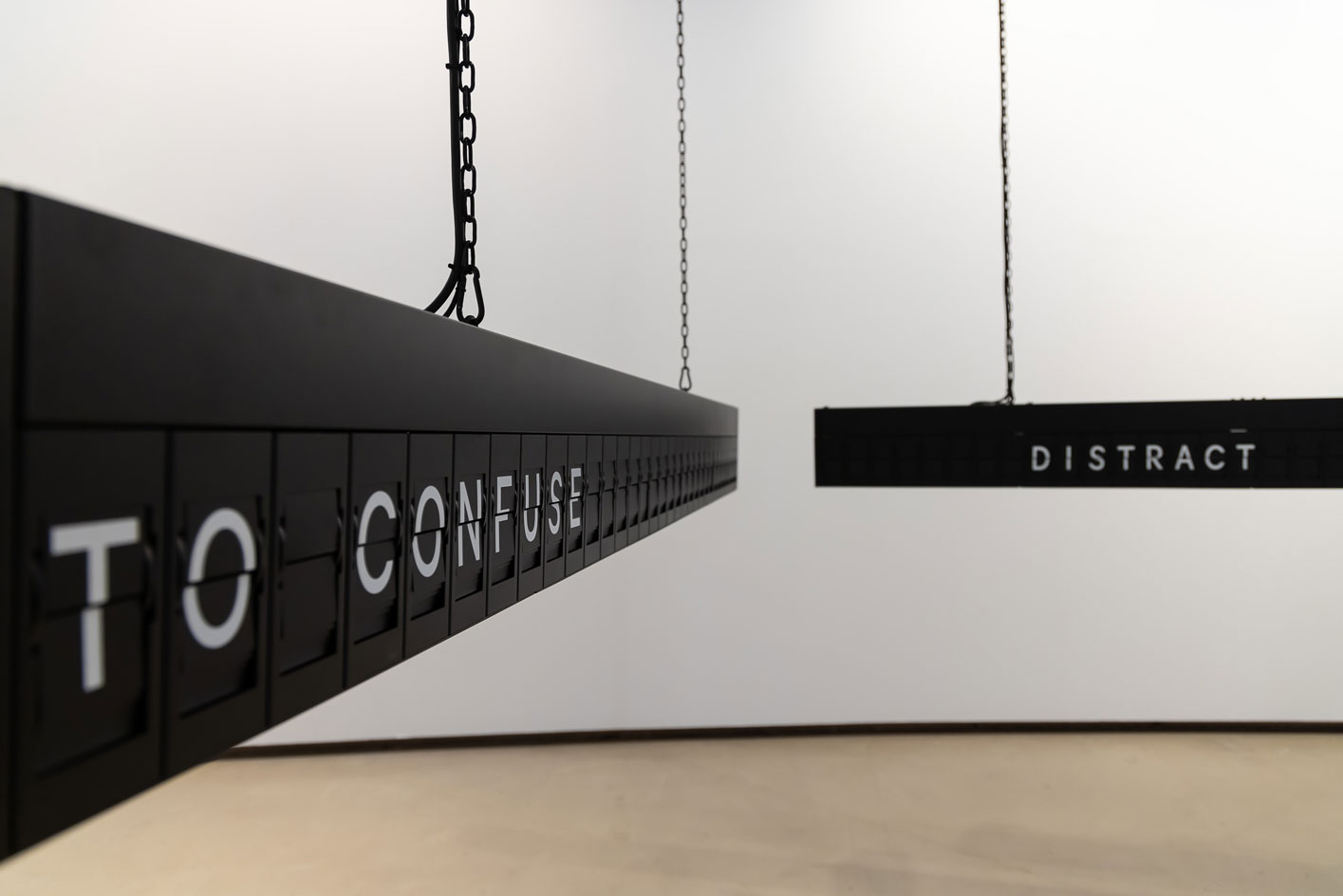
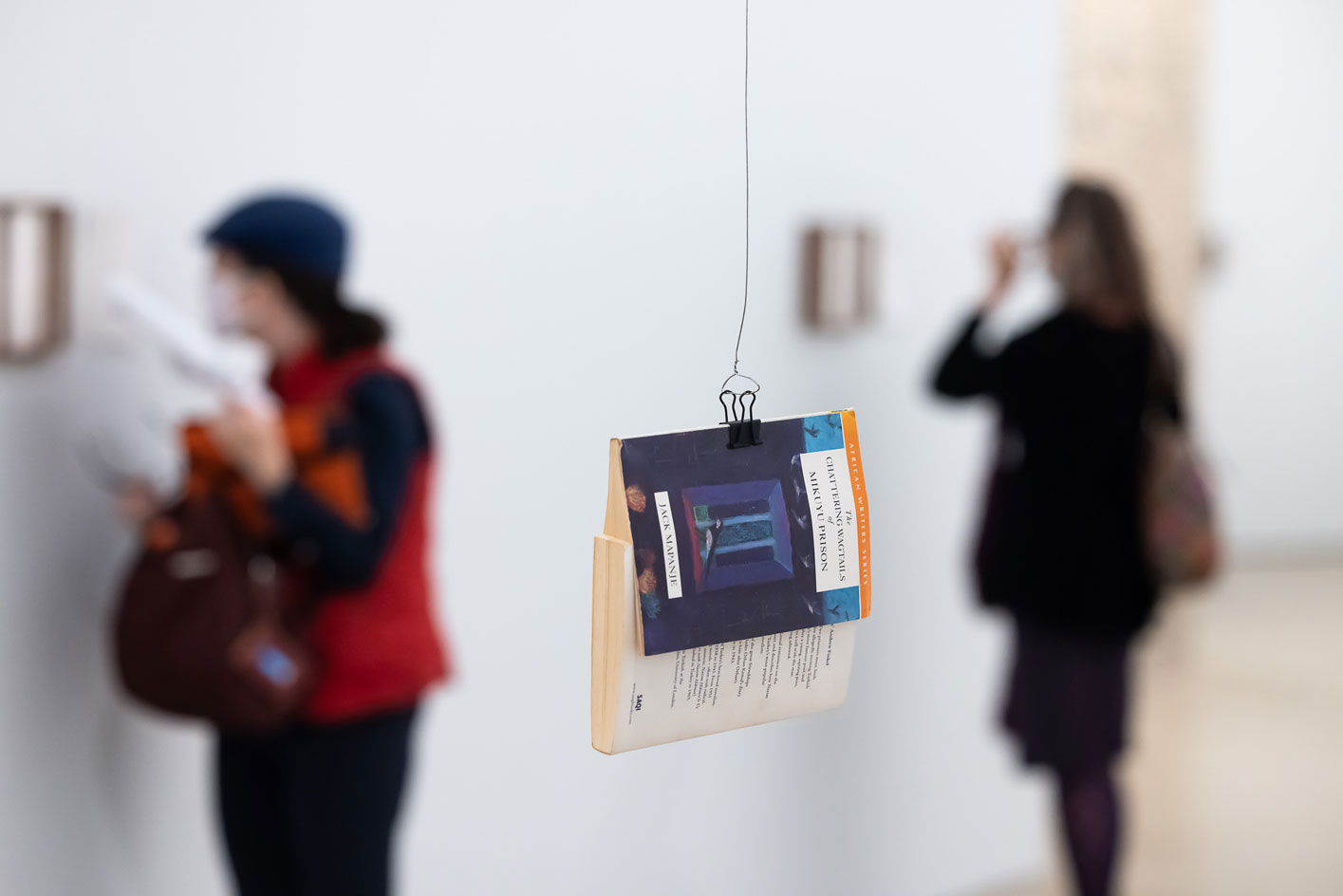
INFORMATION
Shilpa Gupta: ‘Sun at Night’, until 6 February 2022, The Curve, Barbican Centre, barbican.org.uk
-
 Put these emerging artists on your radar
Put these emerging artists on your radarThis crop of six new talents is poised to shake up the art world. Get to know them now
By Tianna Williams
-
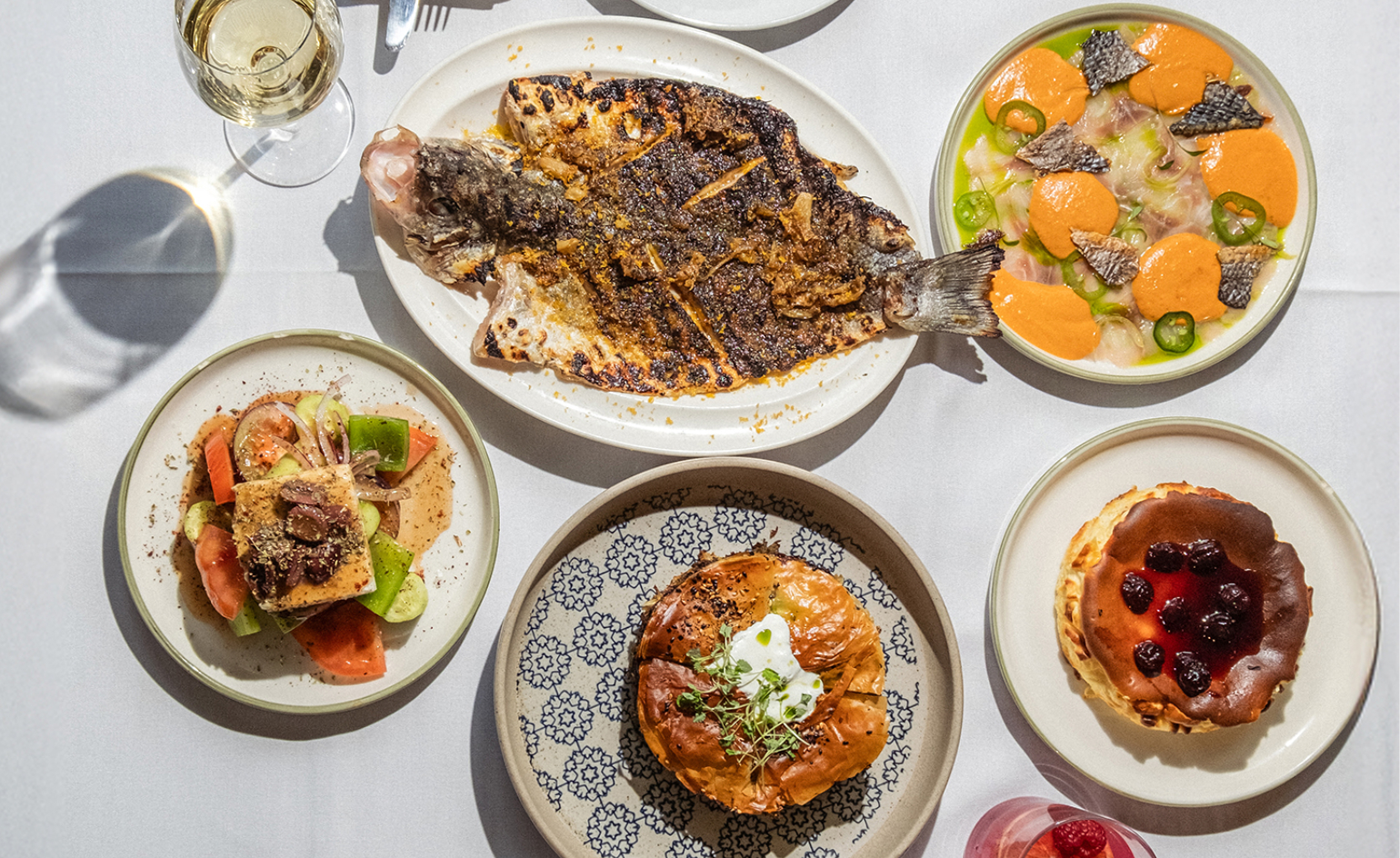 Dining at Pyrá feels like a Mediterranean kiss on both cheeks
Dining at Pyrá feels like a Mediterranean kiss on both cheeksDesigned by House of Dré, this Lonsdale Road addition dishes up an enticing fusion of Greek and Spanish cooking
By Sofia de la Cruz
-
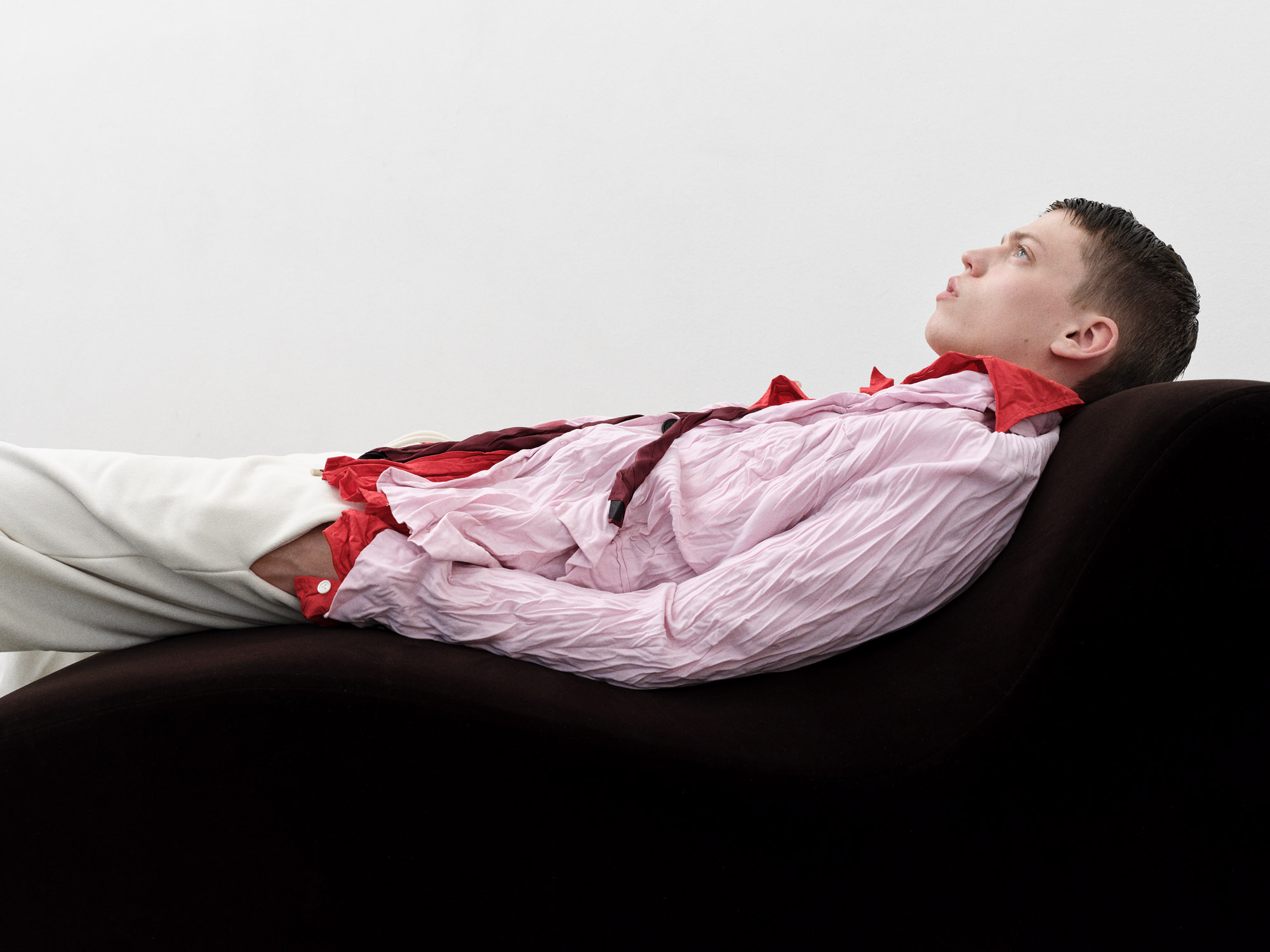 Creased, crumpled: S/S 2025 menswear is about clothes that have ‘lived a life’
Creased, crumpled: S/S 2025 menswear is about clothes that have ‘lived a life’The S/S 2025 menswear collections see designers embrace the creased and the crumpled, conjuring a mood of laidback languor that ran through the season – captured here by photographer Steve Harnacke and stylist Nicola Neri for Wallpaper*
By Jack Moss
-
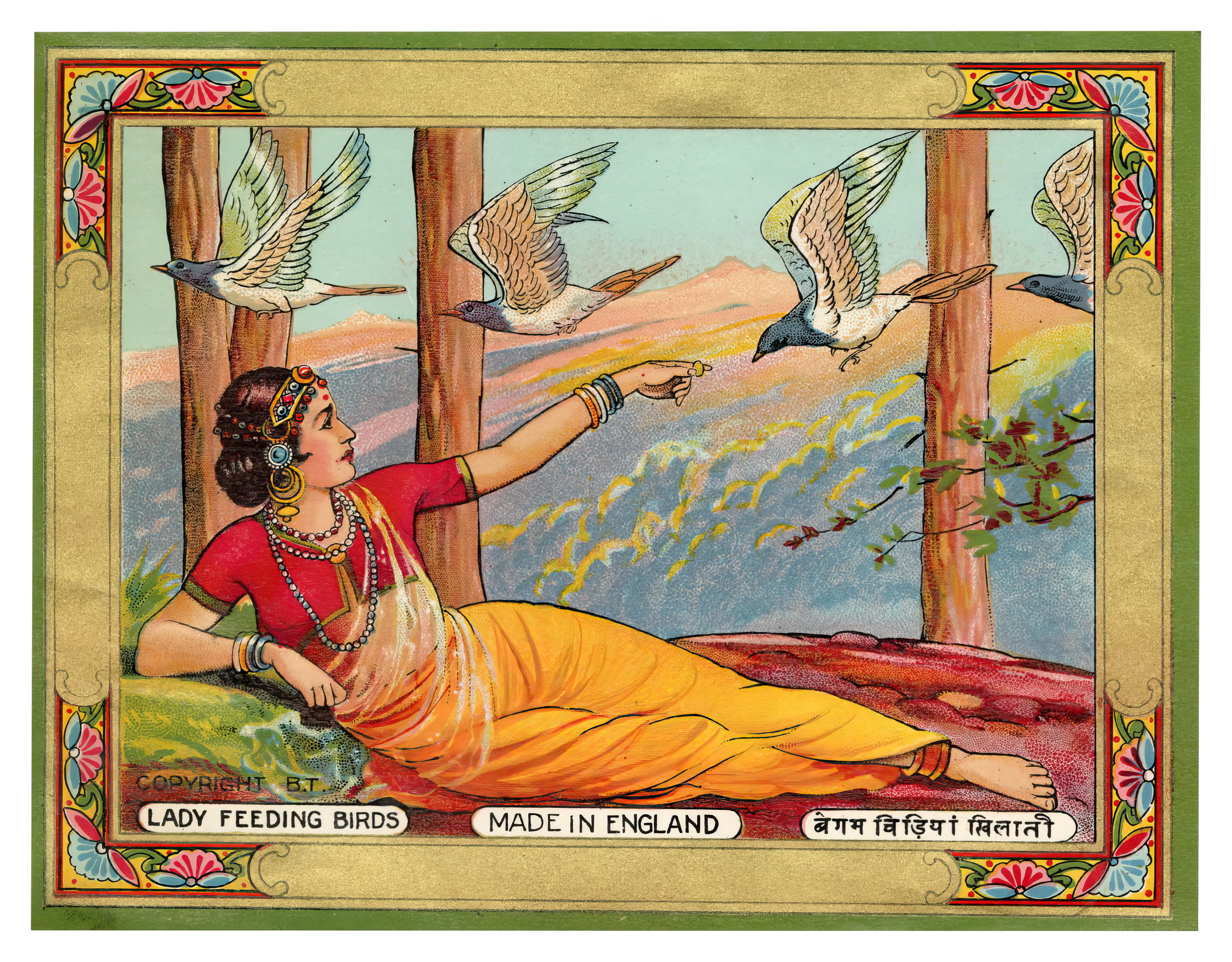 The art of the textile label: how British mill-made cloth sold itself to Indian buyers
The art of the textile label: how British mill-made cloth sold itself to Indian buyersAn exhibition of Indo-British textile labels at the Museum of Art & Photography (MAP) in Bengaluru is a journey through colonial desire and the design of mass persuasion
By Aastha D
-
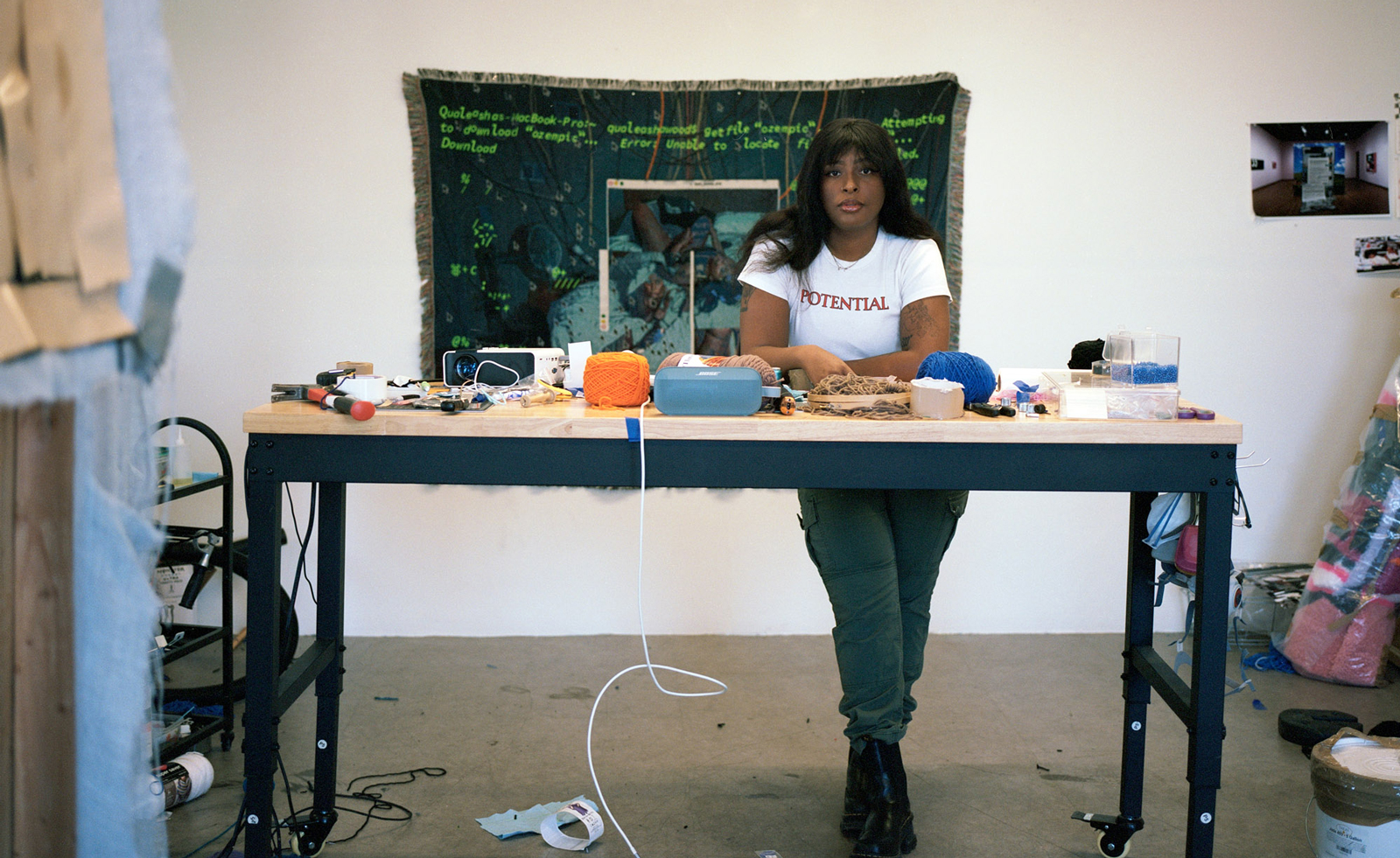 Artist Qualeasha Wood explores the digital glitch to weave stories of the Black female experience
Artist Qualeasha Wood explores the digital glitch to weave stories of the Black female experienceIn ‘Malware’, her new London exhibition at Pippy Houldsworth Gallery, the American artist’s tapestries, tuftings and videos delve into the world of internet malfunction
By Hannah Silver
-
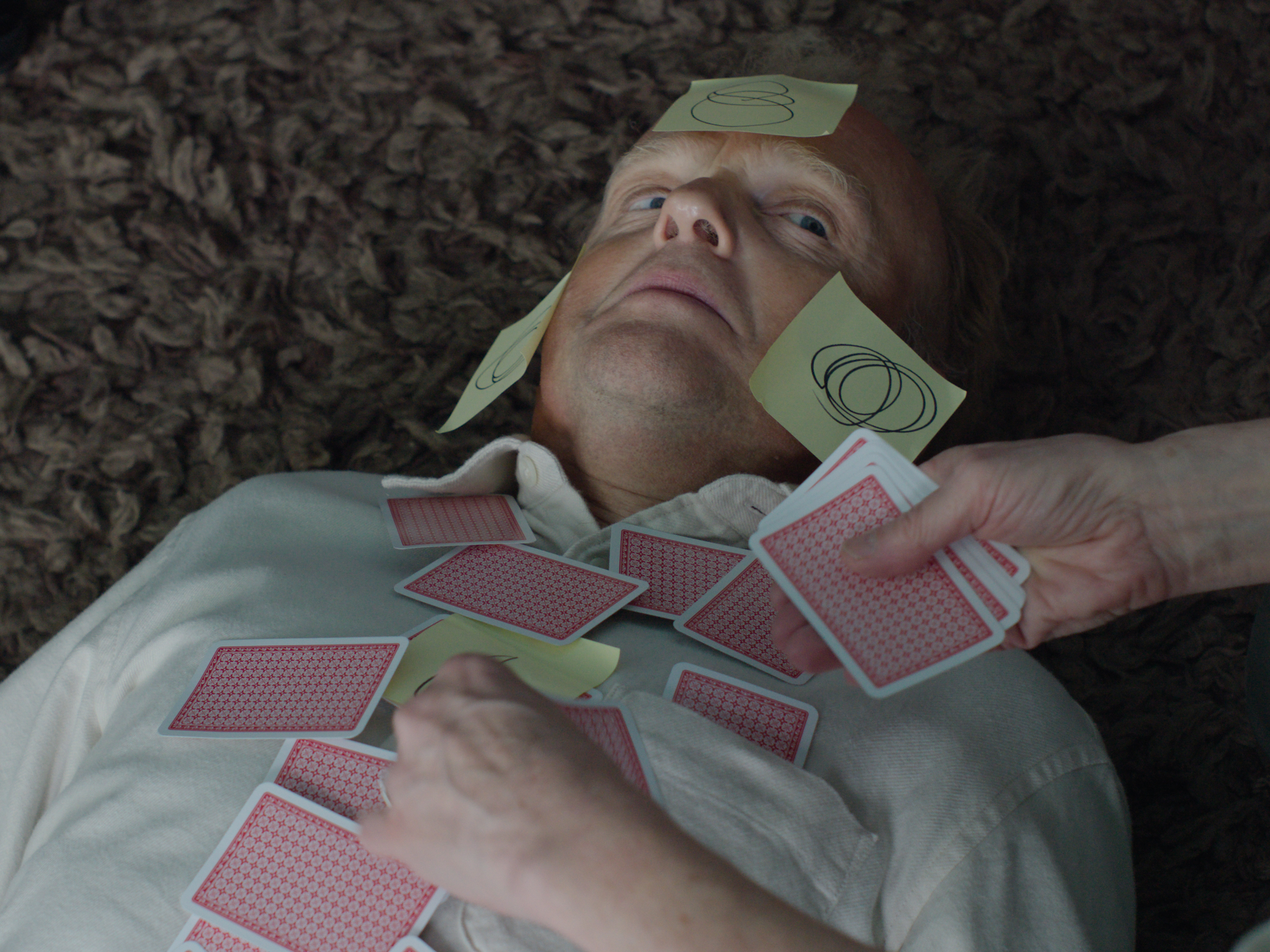 Ed Atkins confronts death at Tate Britain
Ed Atkins confronts death at Tate BritainIn his new London exhibition, the artist prods at the limits of existence through digital and physical works, including a film starring Toby Jones
By Emily Steer
-
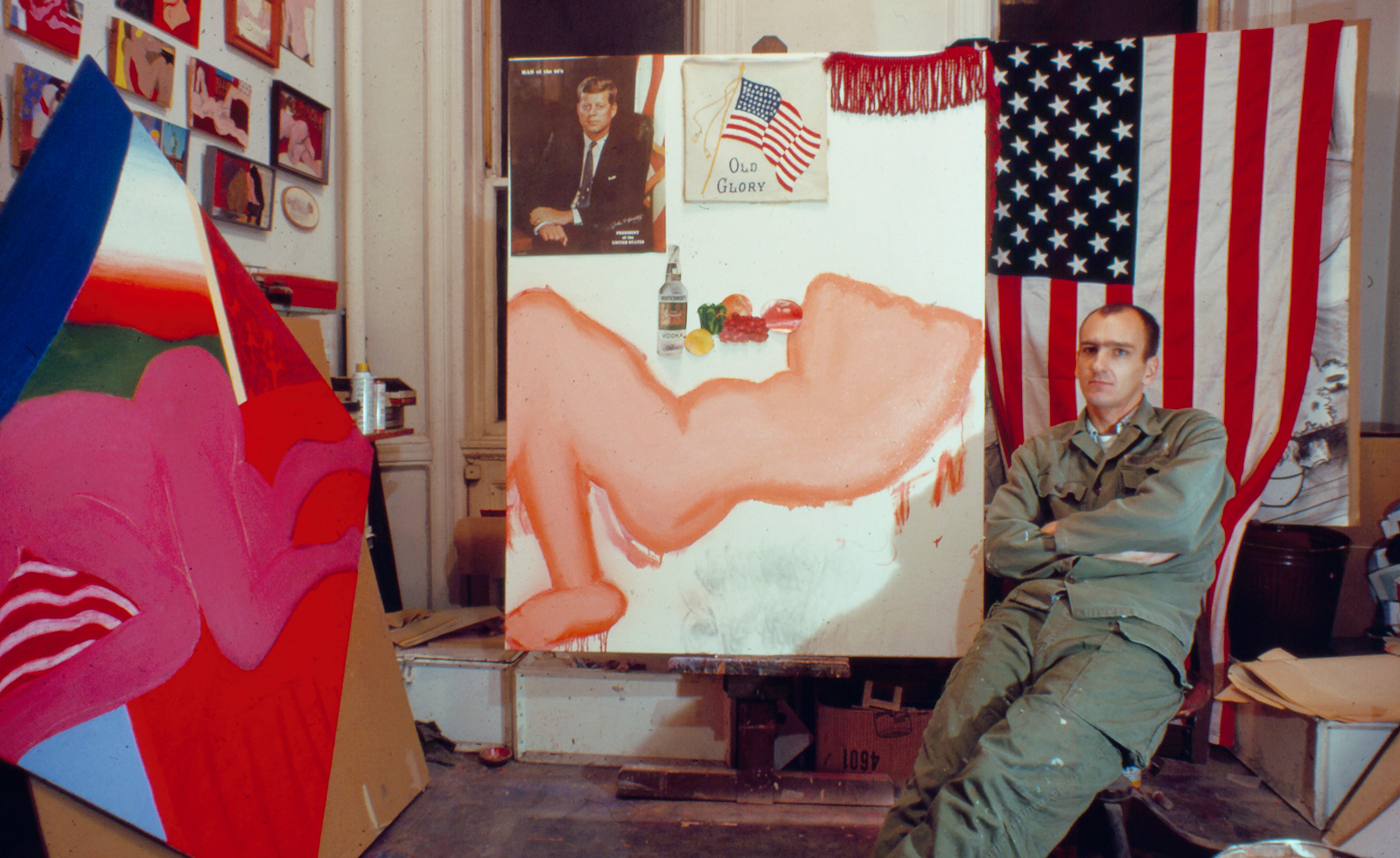 Tom Wesselmann’s 'Up Close' and the anatomy of desire
Tom Wesselmann’s 'Up Close' and the anatomy of desireIn a new exhibition currently on show at Almine Rech in London, Tom Wesselmann challenges the limits of figurative painting
By Sam Moore
-
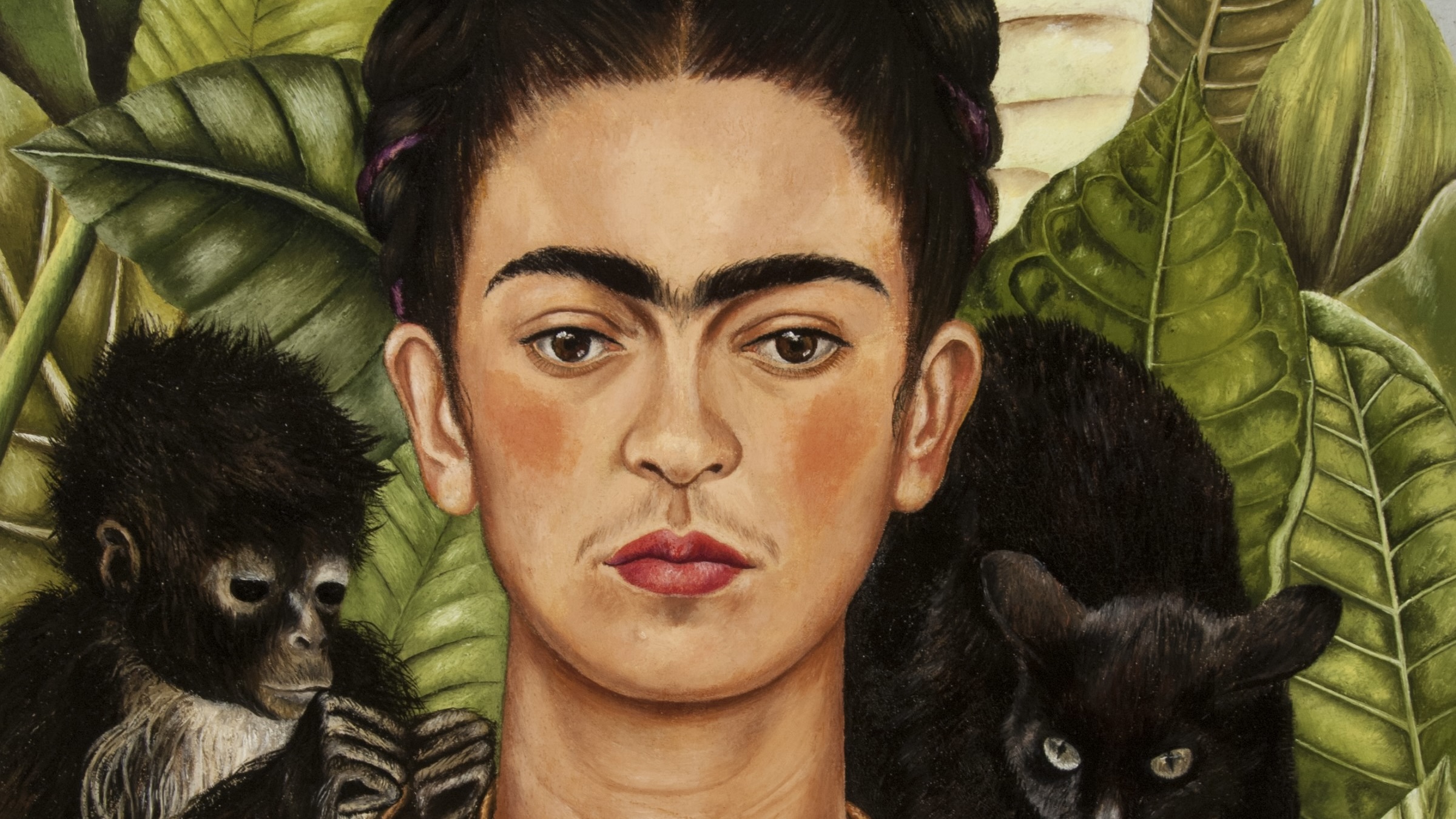 A major Frida Kahlo exhibition is coming to the Tate Modern next year
A major Frida Kahlo exhibition is coming to the Tate Modern next yearTate’s 2026 programme includes 'Frida: The Making of an Icon', which will trace the professional and personal life of countercultural figurehead Frida Kahlo
By Anna Solomon
-
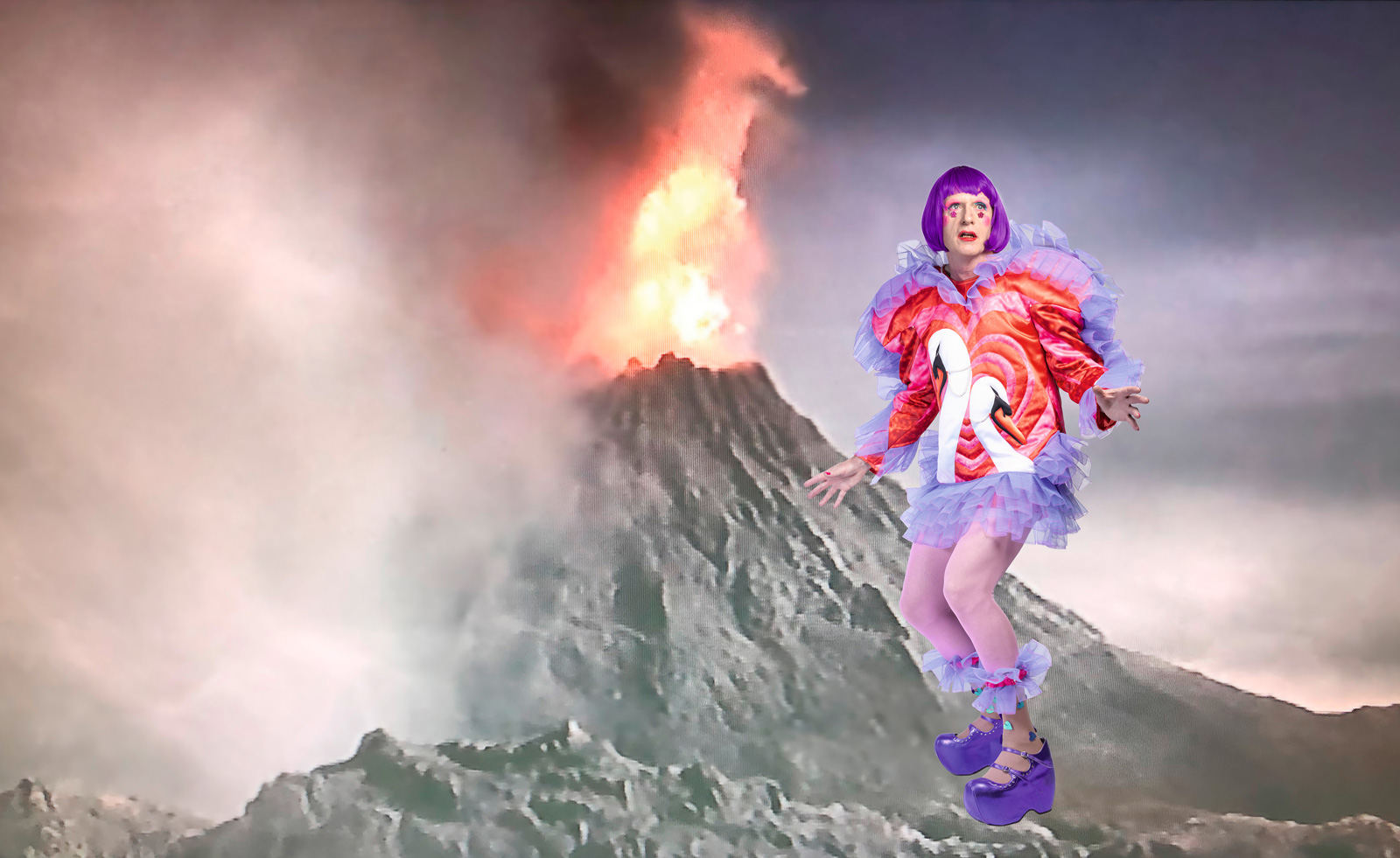 A portrait of the artist: Sotheby’s puts Grayson Perry in the spotlight
A portrait of the artist: Sotheby’s puts Grayson Perry in the spotlightFor more than a decade, photographer Richard Ansett has made Grayson Perry his muse. Now Sotheby’s is staging a selling exhibition of their work
By Hannah Silver
-
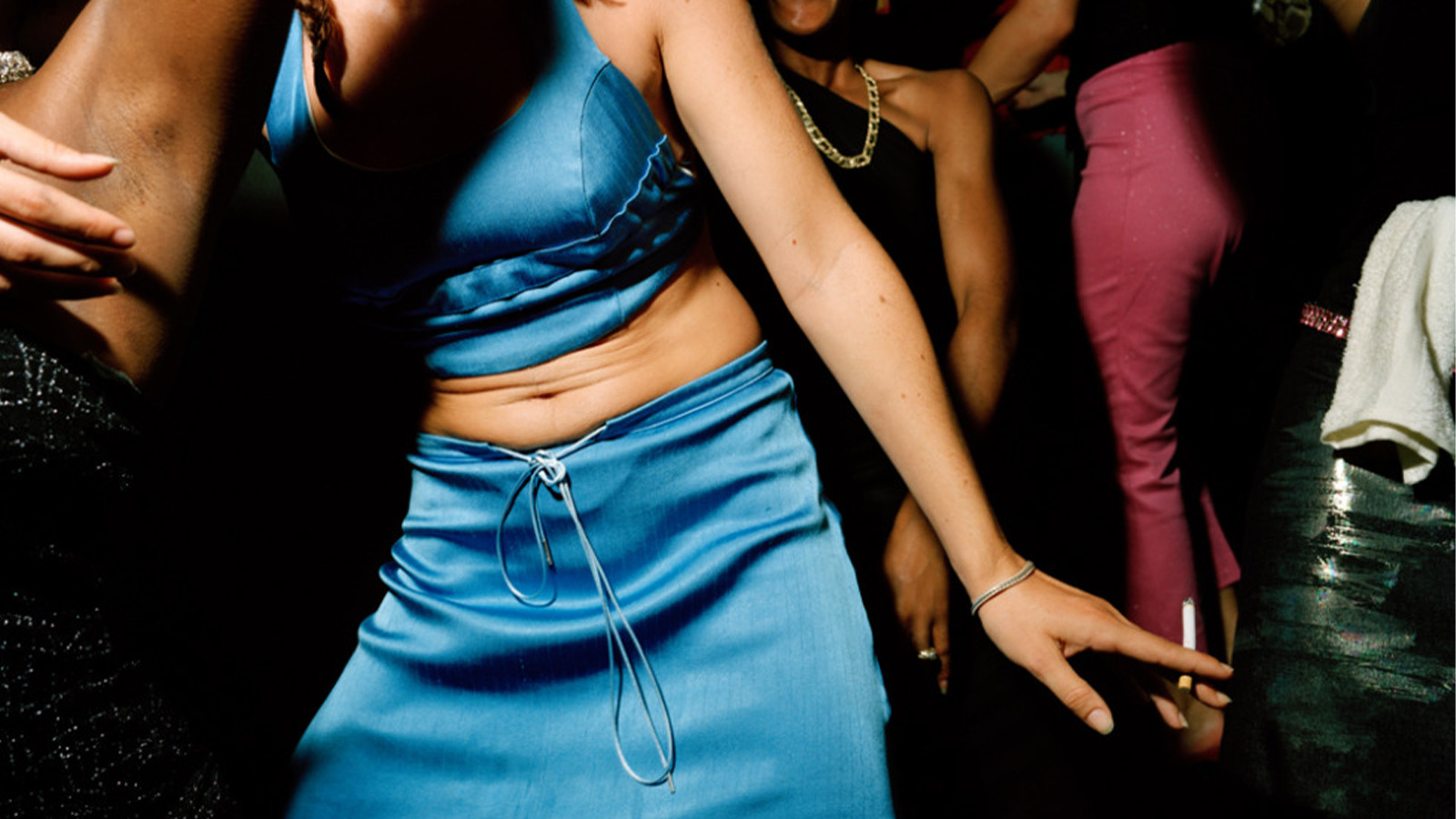 From counter-culture to Northern Soul, these photos chart an intimate history of working-class Britain
From counter-culture to Northern Soul, these photos chart an intimate history of working-class Britain‘After the End of History: British Working Class Photography 1989 – 2024’ is at Edinburgh gallery Stills
By Tianna Williams
-
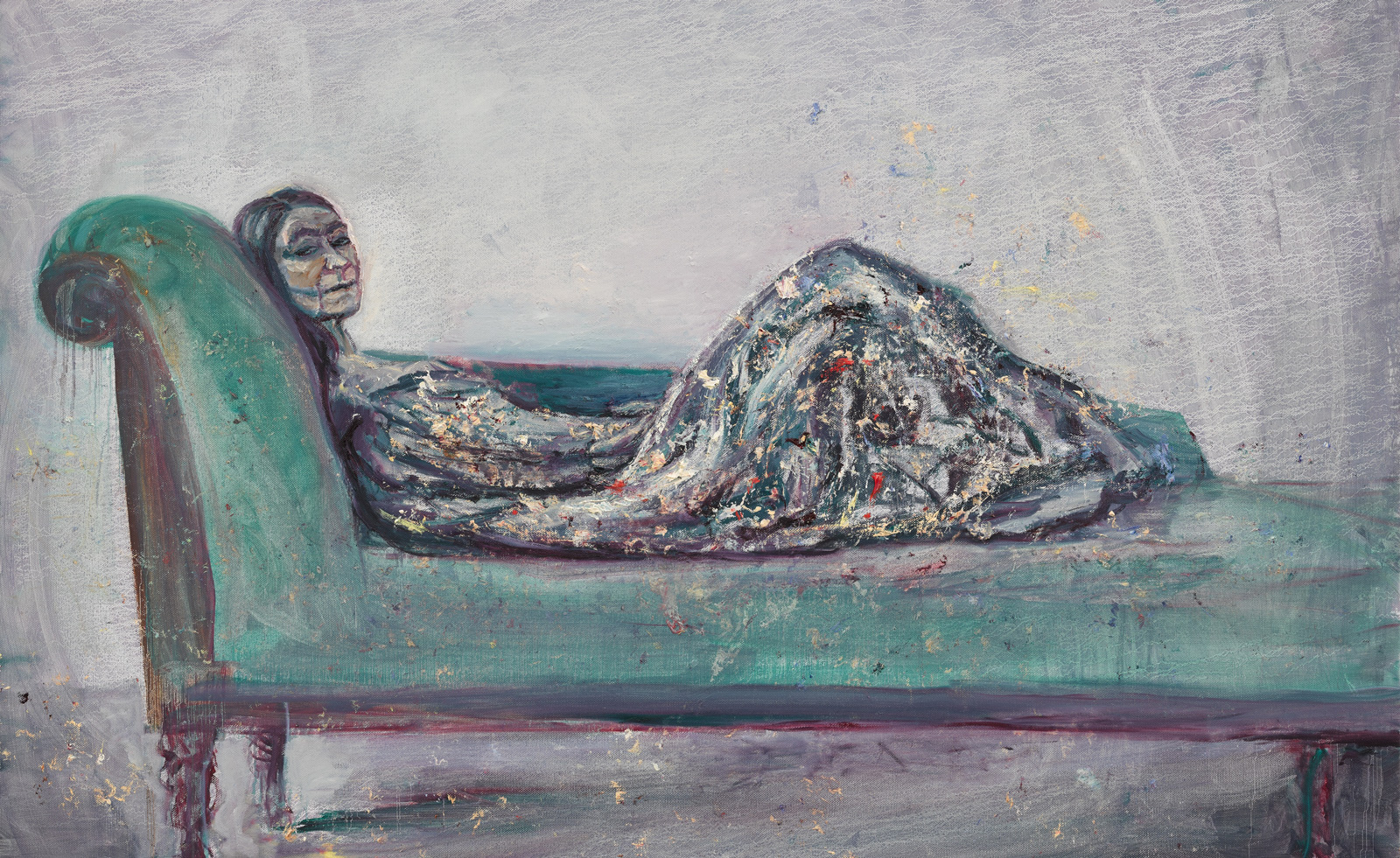 Celia Paul's colony of ghostly apparitions haunts Victoria Miro
Celia Paul's colony of ghostly apparitions haunts Victoria MiroEerie and elegiac new London exhibition ‘Celia Paul: Colony of Ghosts’ is on show at Victoria Miro until 17 April
By Hannah Hutchings-Georgiou